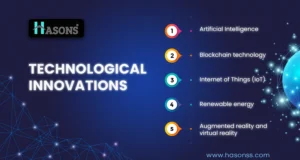Importance and Benefits of Technology
Think about the fact that today you cannot use a smartphone, laptop, or the Internet. Hard to picture, right? Technology now permeates every aspect of life, shaping how people interact, do business, socialize, and have fun. Understanding its significance is crucial for technophiles and businesspeople to navigate the fast-paced tech environment.

Added Efficiency
Technology is highly beneficial because it enhances effectiveness. Automation and integrated programs streamline data handling and task completion, saving valuable time. Tools like Trello and Asana enhance time management and team coordination, reducing the need for lengthy meetings and excessive emails.
Further still, technology helps in eradicating the omissions, which bring a lot of inconveniences when it comes to correction. For instance, people use QuickBooks software for accounting, which minimizes the risks associated with computations. This saves so much time while at the same time guaranteeing accuracy, which is crucial for any business.
Faster decision-making decision-making
In today’s fast-paced world, quick information and decision-making are crucial, requiring efficient evaluation of actions without delay. Technology facilitates up-to-date information in decision-making, thereby helping a business adapt to change quickly. Consumer metrics are provided through platforms like Google Analytics to assist firms in properly marketing their brands.
Tools like Slack or Microsoft Teams prove beneficial for organizations real-time communication and faster decision-making. Multiple people can collaborate on a project simultaneously without delays, unlike with email.
Cost- and time-saving
Quite often, technology can bring about major reductions in costs and time and is hence essential in any enterprise. Cloud-based services, such as AWS or Google Cloud, do not require massive private physical resources and equipment. It allows businesses to adjust operations flexibly and incur costs based on actual usage.
Virtual tools like Zoom or Teams enable remote work, reducing office space needs and cutting costs on rent, utilities, and other overhead expenses. Also, the availability of work-from-home jobs may contribute to a higher turnout of workers and reduced turnover.
Competitive Edge
It indicates that in today’s competitive world, businessmen cannot lag when it comes to technology. Firms using advanced technologies create stronger market competition than those that don’t.
Thus, artificial intelligence and machine learning allow the improvement of the effect of marketing campaigns, reaching the appropriate audience with relevant content. This enhances conversion rates and consequently the sales of the products and services, hence providing the business with an added advantage in the market.
Computer security is also necessary to boost competitiveness. That is why higher levels of security are applied to prevent the leakage of data and to maintain customers’ confidence and regulatory compliance. Any organization that applies optimal measures to fortify cybersecurity will not incur the expensive consequences of a data breach and will maintain client loyalty and business reputation.
Increased Innovation
It is equally important that there be encouragement for technology if innovations are to thrive in a given society. The importance of technology lies in its role as a precursor to innovative conceptualizations.
The Internet of Things (IoT) places non-trivial devices online to create smart homes and cities. Such interdependency leads to the creation of novelty in different parts of the economy, such as the health sector, transport systems, and farming. For example, smart irrigation systems act on IoT sensors that help detect the level of moisture in the soil, reducing water waste and increasing production.
Technological Innovations and Their Uses

Technological changes are new or improved technologies that have the potential to revolutionize society through the adoption of aspects of living, productive activities, and the physical world. Here are some of the top new technology trends and their uses:
Artificial Intelligence
This branch of computer science programs machines to mimic human functions, covering areas like speech recognition, decision-making, and language translation. Applications include personal assistants, chatbots, and self-driving cars.
Blockchain technology
A blockchain can be defined as a distributed and decentralized database that is used for recording transactions while maintaining their security. Some of the areas of practice include cryptocurrency, supply chains, identification, and voting.
Internet of Things (IoT)
IoT is the global network of physical objects and services linked to the internet, automobiles, home appliances, and other similar products, comprising electronics, software, sensors, and networks for starting the communication of data. IoT is applied in smart homes or houses, wearable devices, smart cities, and industrial automation.
Renewable energy
Renewable energy technologies, which include solar, wind, and hydropower, among others, play a significant role in the search for sustainable solutions to power generation that are non-carbon-intensive and thus have lasting solutions to climate change. Renewable energy is being applied in new areas, some of which include electricity production, mobility, and farming.
Augmented reality and virtual reality.
AR and VR technologies make it possible to provide the end-user with augmented information within the physical environment or a virtual reality setting. Some of the domains where AR or VR is applied are the games arena, learning environment, training simulations, and entertainment.
Types of roles in the field of technology
- Originally rooted in software development, today the tech industry is one of the biggest and most diverse, with many job roles that differ in the skills and knowledge needed to perform them.
- Programmers and software engineers are responsible for the development of applications and products and have a heavy input in the manufacture of new systems.
- They employ programming languages such as Python, Java, and C++ to come up with software solutions.
- Digital analysts use sophisticated sets of data and algorithms to find meaning in certain patterns.
- Their decisions are based on numerical methods and computational analysis utilizing the models of artificial intelligence. This role is very important, especially for firms operating in the financial and healthcare sectors and the marketing of goods and services.
- Cybersecurity specialists safeguard the firm from cyber threats. They provide security solutions, analyze the risks, assess the security threats, and manage the security threats.
- With the rise in the incidence of cyber-attacks, more and more organizations require cybersecurity professionals.
Technology in Our Daily Lives
Technology significantly contributes to our day-to-day activities by making work easier. People can easily reach friends and families with these phones since these devices act as communication centers. They also have lots of apps available for every purpose, from choosing directions to health and fitness apps.
Smart speakers such as Amazon Echo or Google Nest complement lifestyles by doing everything from turning lights on and off to setting the temperature. These devices can learn the users’ preferences continually, thus providing a personalized habitat.
Conclusion
In conclusion, it could be said that the importance of technology in our lives is enormous, and technologies bring a lot of value to our lives. From better efficiency and timely decision-making to avoidable cost-cutting, gaining competitive advantage, and sharpening creativity, technology is one of the most influential determining factors in the world. Creating an awareness of new and developing technologies appears to be critical for tech-savvy personalities and businessmen.
Importance of Technology
- What are the main ways that technology improves our lives?Technology increases the quality of our lives by increasing effectiveness through real-time information for fast decision-making, reducing costs and time in operations through mechanisms, enabling firms to distinguish themselves with the newest technology tools, and stimulating development in numerous industries.
- How has technology improved the standard of living over time?With the invention of new technologies, people have enjoyed an improved standard of living since insecure things can now be easily done and acquired, information and education have become easily accessible, many illnesses have been phased out through telemedicine, the health sector has been digitalized, and many employment opportunities have been created within the technology industries.
- What are some downsides or risks of over-reliance on technology?Of course, technology has its perks, but problems occur when it becomes a daily norm to lean on the machinery: people can become socially isolated because of technological aids; there are cases when workers lose their jobs to machines and artificial intelligence; there are often cyber threats that target technology devices; and because of the screen time, one can develop mental health issues that can be dangerous.
- How can we maximize the positive impact of technology?However, it is still relevant to know more about new technologies and the best practices for using them securely, using technology to support rather than replace interpersonal communication, and always looking for opportunities to innovate with technologies for better business outcomes.
